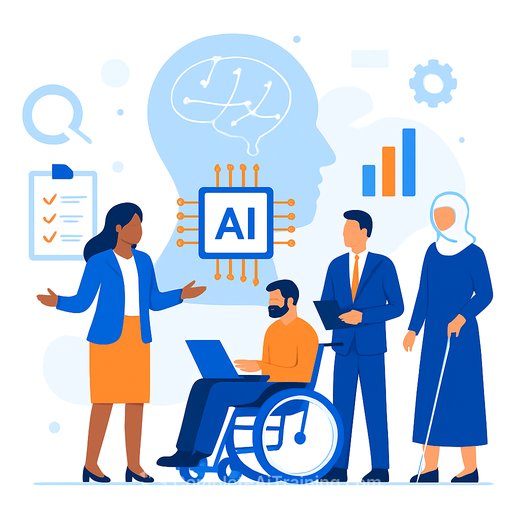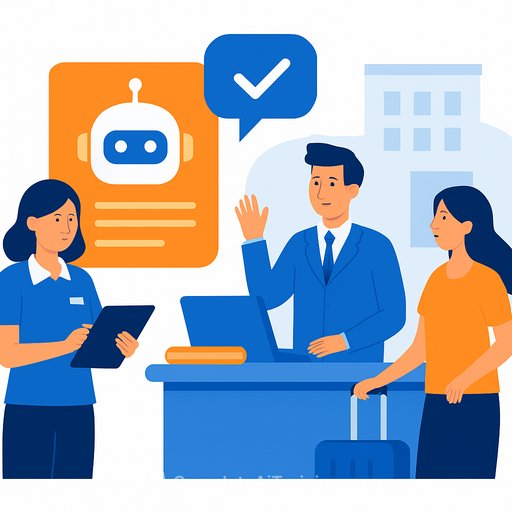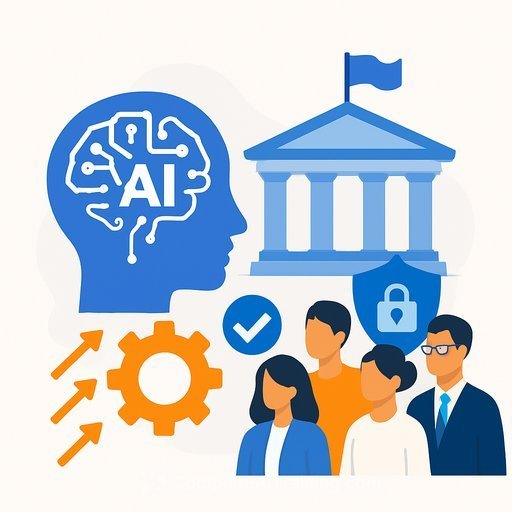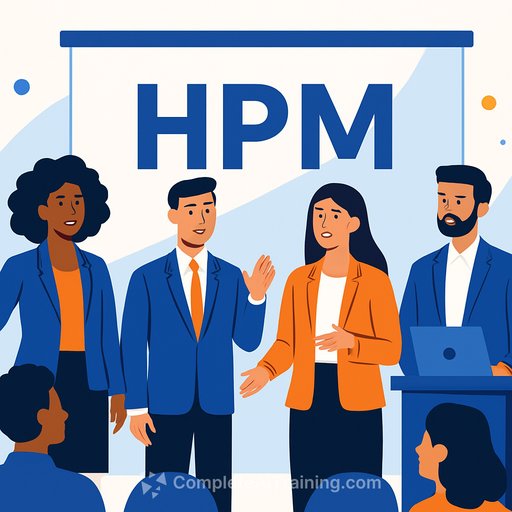AmCham Kuwait's Future of AI Forum: Practical AI for HR and Accessibility
AmCham Kuwait hosted its 4th Future of AI Forum in Kuwait City under the theme "Transforming HR & Accessibility." The half-day event gathered business leaders, policymakers, technologists, and accessibility advocates to turn AI into practical outcomes for teams and workplaces.
The forum aligned AI use cases with Kuwait Vision 2035 and the upcoming National AI Strategy. Sponsors included Kuwait Resources House (Platinum), Elevatus (Silver), SAP (Silver), The Economic (Media Partner), and The Business Year (Strategic Partner).
Learn more about Kuwait Vision 2035.
Why this matters for HR
Pete Swift, Chair of AmCham Kuwait, set the tone: "AI is not just about technology, it is about creating workplaces that are more efficient, equitable, and accessible." For HR leaders, this translates to fewer manual bottlenecks, better data for decisions, and stronger inclusion practices that meet business and policy goals.
Panel 1: AI and the Future of HR in Kuwait
Moderated by Maite Elizalde (The Business Year Kuwait), this discussion showed how HR can move from theory to execution. Panelists included Mohammed Zaki (Beyout Holding), Dima Baqaeen (Elevatus), Dr. Arezou Harraf (ABCK-AmCham Kuwait, Box Hill College Kuwait), and Tanja Dedovic (IOM MENA).
- Recruitment: AI screening and structured assessments to reduce bias and speed up shortlisting while supporting Kuwaitisation objectives.
- Upskilling: Personalized learning paths mapped to roles, performance, and future skills demand.
- Workforce analytics: Predictive insights for attrition, engagement, and capacity planning-without exposing sensitive data.
- Governance: Clear policies for data privacy, model transparency, and fair use across the employee lifecycle.
Panel 2: Inclusive Intelligence - AI and Accessibility
Moderated by Ebrahim Alkandari (Dotslink; Harek Association), the panel spotlighted tools and frameworks that support full workforce participation for people with disabilities. Speakers included Mayzad Gharzeddine (SAP SuccessFactors), Naeem Mirza (AI Doctrine), Waad Al-Azmi (Zain Group), and Dr. Zainab AlMeraj (Tech Connect Co., Kuwait University).
- Assistive tech: Speech-to-text, real-time translation, screen readers, and adaptive interfaces embedded in daily workflows.
- Learning access: AI-driven platforms that adjust content format, pacing, and support channels to individual needs.
- Standards and policy: Apply recognized accessibility guidelines and codify accommodations in HR policies and vendor requirements.
Review WCAG accessibility guidelines to inform procurement and product reviews.
What HR can implement this quarter
- Run a hiring pipeline audit: Map each step, add structured scoring, and test an AI-enabled screening tool with bias checks.
- Publish an AI in HR policy: Define use cases, approvals, data retention, and employee consent. Include accessibility as a core requirement.
- Pilot skills-based learning: Start with one department, roll out personalized learning plans, and measure role-readiness and completion rates.
- Set metrics: Track time-to-hire, quality-of-hire, internal mobility, training completion, accessibility requests fulfilled, and retention for employees with disabilities.
- Train managers: Provide short modules on inclusive hiring, reasonable accommodations, and responsible AI use.
- Vendor due diligence: Require explainability, privacy safeguards, and accessibility compliance from any AI HR tool.
Event outcomes
Interactive Q&A sessions dug into ethics, accessibility standards, and deployment playbooks across sectors. The forum closed with appreciation for sponsors, panelists, and contributors, followed by networking that connected HR teams with solution providers and policy experts.
AmCham Kuwait reaffirmed its commitment to cross-sector collaboration and responsible AI adoption that supports innovation and inclusion across the Kuwaiti workforce.
Attendee checklist
- Define 2-3 AI use cases tied to business outcomes and Kuwaitisation goals.
- Form a cross-functional working group with HR, IT, Legal, and Accessibility leads.
- Create a lightweight model risk and bias review for any AI tool touching hiring or promotion.
- Include employees with disabilities in tool evaluations and user testing.
Keep learning
HR teams investing in AI skills can accelerate safe adoption and measurable results. Explore role-based AI learning paths for HR and people operations at Complete AI Training.
About ABCK-AmCham Kuwait
ABCK-AmCham Kuwait is a non-profit organization operating since 1985, composed of Fortune 500 corporations, small and medium-sized companies, and prominent business leaders and entrepreneurs, both American and Kuwaiti. It has acted as an advocate for American interests in Kuwait.
For more information, visit www.amchamkuwait.org or follow @abck1985 on social media.
Your membership also unlocks:






